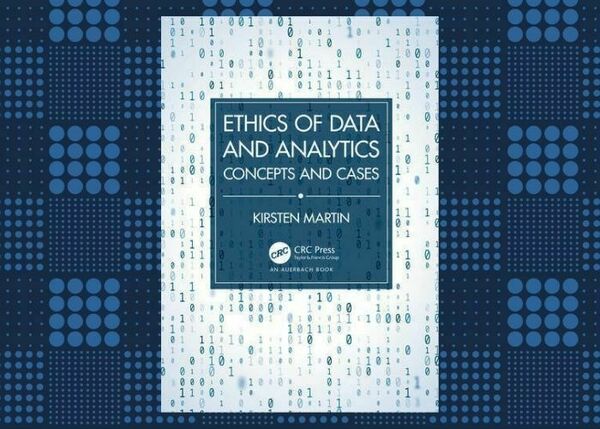
For as long as people have bought and sold things, society has faced ethical questions about the way we expect businesses to interact with their customers, their employees, and one another.
But in an online world where the collection of our personal data has become pervasive and the details gathered are themselves a commodity used not only by companies but also governments, law enforcement, and others, traditional norms of ethical decision-making often prove inadequate.
A new anthology by Kirsten Martin, director of the Notre Dame Technology Ethics Center (ND TEC), aims to jumpstart the conversation on how we can adapt to this ever-changing environment.
Ethics of Data and Analytics: Concepts and Cases, published in May by CRC Press, part of the Taylor & Francis Group, is a first-of-its-kind textbook that bridges the gap between traditional business ethics and the particular moral hurdles introduced by data analytics. Martin pairs real-world case studies with academic research that speaks to the issues at play, emphasizing the need to draw on multiple ethical approaches as ways to engage with current problems rather than prioritizing one set of concepts or theories.
“The ethical issues we are seeing with data analytics, including artificial intelligence and machine learning more specifically, are best illuminated using classic theories of fairness, ethics, power, privacy, and autonomy,” said Martin, who is William P. and Hazel B. White Center Professor of Technology Ethics and a professor of IT, analytics, and operations in Notre Dame’s Mendoza College of Business. “Students are always so engaged with the real-world examples as well as the denser theoretical concepts. The goal is for the students to have the tools to examine a wide range of ethical issues across technologies when they are working.”
Ethics of Data and Analytics includes suggestions for how instructors might incorporate the case studies in their courses and combines original work by Martin with that of other scholars. The topics covered are numerous and include explorations of issues such as the recommendation algorithms used by companies like Facebook, the intersection of Big Tech and AI ethics, and privacy and consumer data markets.
“Data analytics is growing in business schools, and more are offering courses in the ethics of data analytics,” Martin said. “I find students want to talk through these issues and better understand the social implications of their work. By directly engaging with classic business ethics issues—short-term profit versus long-term value creation, the interests of marginalized stakeholders, etc.—the students are able to examine the ethical issues of data and analytics within the tensions they will face in business.”
A nationally recognized expert in privacy, technology, and corporate responsibility, Martin has written about privacy and the ethics of technology in leading academic journals across disciplines—including the Journal of Business Ethics, BEQ, the Harvard Journal of Law & Technology, The Journal of Legal Studies, Washington University Law Review, and the Journal of Business Research—as well as practitioner publications such as MISQ Executive.
In 2018, she was appointed to a five-year term on the board of directors of the Society for Business Ethics. She served as program chair for the 2021 annual meeting before assuming the group’s presidency for 2021–22. She also sits on the program committee for the Privacy Law Scholars Conference, the largest conference on privacy law in the United States.